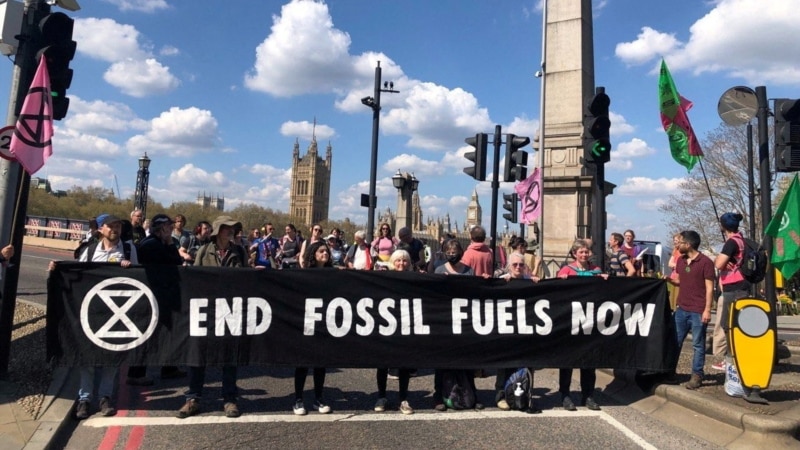Environmental group Extinction Rebellion said Sunday it would no longer stage its infamous blockades of U.K. transport networks and will instead hold a major demonstration against government policy in April.
The activist network, formed in the U.K. in 2018, has regularly used civil disobedience to protest what it calls government inaction on climate change.
Activists gained notoriety for blockading train lines, airports and roads, causing chaos for commuters. At the end of August, they blockaded London’s iconic Tower Bridge.
“As we ring in the new year, we make a controversial resolution to temporarily shift away from public disruption as a primary tactic,” the group said in a statement.
“This year, we prioritize attendance over arrest and relationships over roadblocks, as we stand together and become impossible to ignore,” it added.
While recognizing “the power of disruption to raise the alarm,” the activists said the group would now focus on disrupting “the abuse of power and imbalance” by demanding politicians end fossil-fuel use.
It is calling for 100,000 people to demonstrate outside the U.K. parliament in London April 21.
The group’s actions have infuriated large sections of the public, the Conservative government and much of the media.
Many activists have been arrested, and the government is pursuing plans to further outlaw its protest tactics.
But in its latest statement, the group argued: “The latest draconian attempt by the government to shut down and criminalize effective protest is only increasing public sympathy toward brave activists using their voices to stand up for justice and the loving protection of all humanity.”
Extinction Rebellion has been overtaken by even more radical groups such as Just Stop Oil and Insulate Britain, whose activists sprayed soup on Van Gogh’s masterpiece “The Sunflowers” at the National Gallery in London in October.

